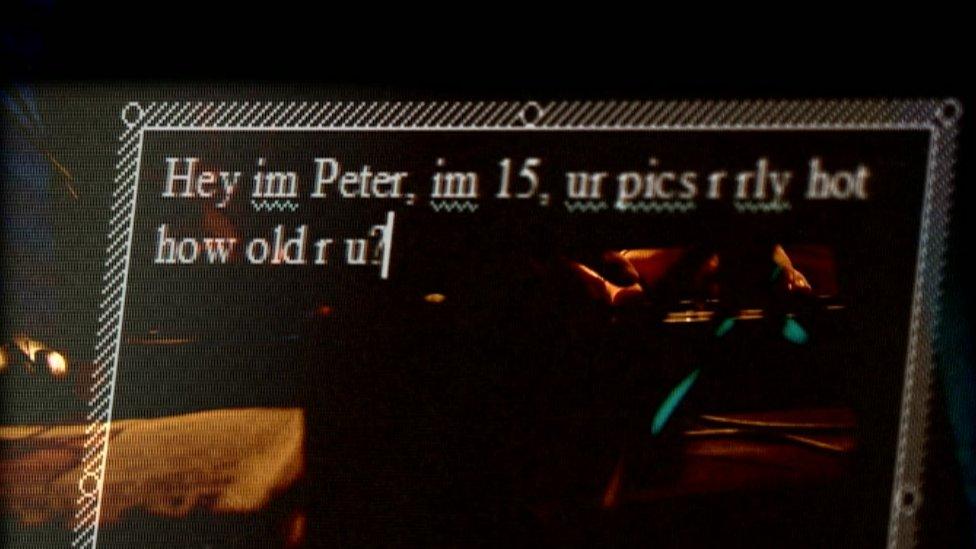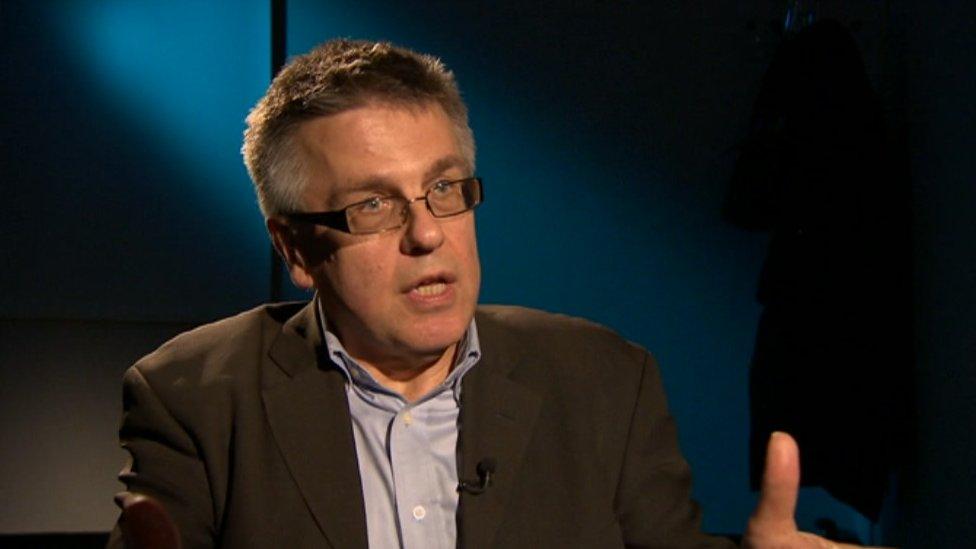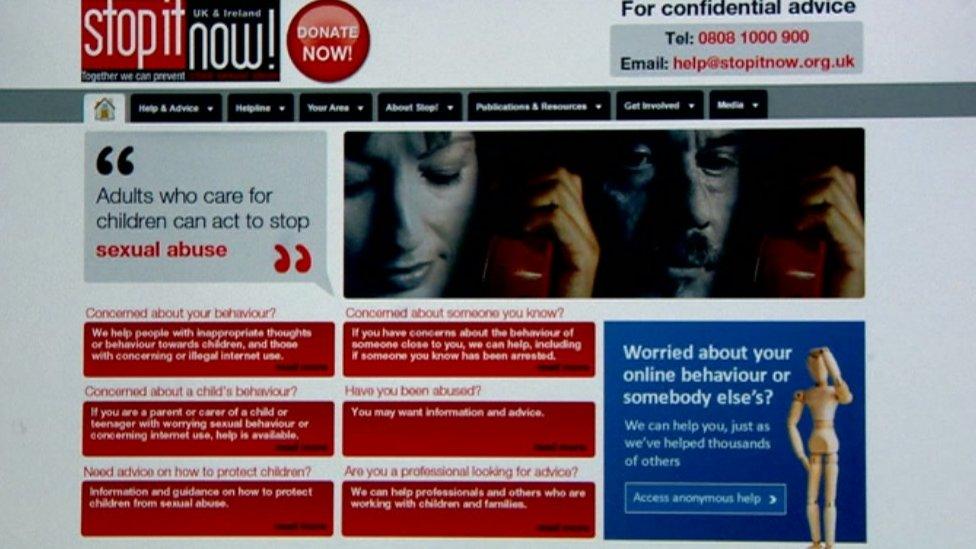Online child sex offences treble in East of England
- Published

More than 4,000 suspected online paedophiles have been identified in the East of England in the last three years
The number of suspected online child sex offenders identified across the East of England has nearly trebled in three years, the BBC has discovered.
Last year more than 2,000 suspects were identified by police forces in the region, compared to 758 in 2014.
The number of cases has left at least one police force overwhelmed, an officer said.
The Home Office said more resources than ever before were being used to target those involved in exploitation.
Under the Freedom of Information Act, the BBC found more than 4,000 suspected paedophiles had been identified across Northamptonshire, Cambridgeshire, Thames Valley, Hertfordshire, Norfolk, Bedfordshire and Suffolk in the last three years.
The forces were asked how many people were suspected of downloading and distributing indecent images of children.
Essex Police refused to say how many suspects had been identified by its officers.
The Lucy Faithfull Foundation, which works to reduce the risk of children being sexually abused, said it currently deals with 700 to 800 calls nationally every month.
The foundation's Donald Findlater said many paedophiles graduate from pornography to indecent images of children.
He said: "Three quarters of the men viewing those indecent images of children were previous to that viewing heavy adult pornography."

The sex offender
For John, downloading sexual images of children was a natural progression from years of viewing pornography.
A pornography user for 20 years, he said he did not realise at first that the children he was viewing were being abused for his gratification, saying he "didn't dwell on that too much".
After being arrested, John - who did not want to give his real name - attended workshops with the Lucy Faithfull Foundation.
He said he is now "fully aware of the damage I have caused" and feels "huge remorse".
John added he was fortunate to be arrested and get help. He was given a community order for his offences.

Mr Findlater said despite police arresting record numbers of suspected paedophiles, those numbers are a small fraction of the actual number of online offenders.

The Lucy Faithfull Foundation's Donald Findlater said simply locking up paedophiles is not the answer
PC Jason Callum, from Northamptonshire Police's Paedophile Online Investigation Team, said the force was "definitely" overwhelmed by the number of cases.
Part of the problem is parents letting children go on the internet from as young as four years old, PC Callum said.
He added the force is only "now getting the true feel of what is going on out there".
"I don't think we'll ever be able to reflect how bad it really is in terms of what people are prepared to do to the most vulnerable people in society; children."
Det Supt Andy Rogers, from the team, said paedophiles act "like small organised crime groups" targeting a society where "everybody has a tablet or a mobile phone".
He said online games and chat rooms are targeted, with offenders posing as 13 or 14 year olds.
The Lucy Faithfull Foundation believes rehabilitation provides an alternative solution to jailing paedophiles.
Mr Findlater said: "A lot of people say look, lock them up.

The victim
When Sarah started talking to a 38-year-old man online she initially ignored his age as she "liked the attention".
The teenager, whose name has been changed for her protection, was first contacted by him on a phone app. He ended up raping her in a hotel room.
Even though she told him "several times" that she was under age, the pair exchanged explicit photographs online.
Eventually they agreed to meet: "I lied to my mum and we ended up staying in a hotel."
"He said he cared about me, but obviously he didn't," she said. "He just wanted to use me like a rag doll."
Her abuser has since been jailed.

"I entirely understand - I'm a parent and a grandparent and these crimes are appalling, but we have to face reality.
"The police cannot, will not, arrest them all so by saying lock them all up what we are doing we are denying the size of the problem."
He said although police were committing more resources and making more arrests, "there's still this volume problem to be dealt with".

The number of suspects accessing online child porn in the East of England has increased from 758 to 2,179 over the last three years
The Home Office spokesman said: "Child sexual abuse is abhorrent and we are determined to do all we can to bring perpetrators of these vile crimes to justice.
"Since 2010, we have increased support for victims of sexual abuse, invested in training and technology to improve law enforcement's response to abuse both on and offline, and brought in a tougher inspection regime to ensure all front-line professions are meeting their child protection duties.
''Overall, in 2015, more than 2,800 individuals were prosecuted for indecent images of children offences, a 27% increase on the previous year."
- Published7 November 2016
